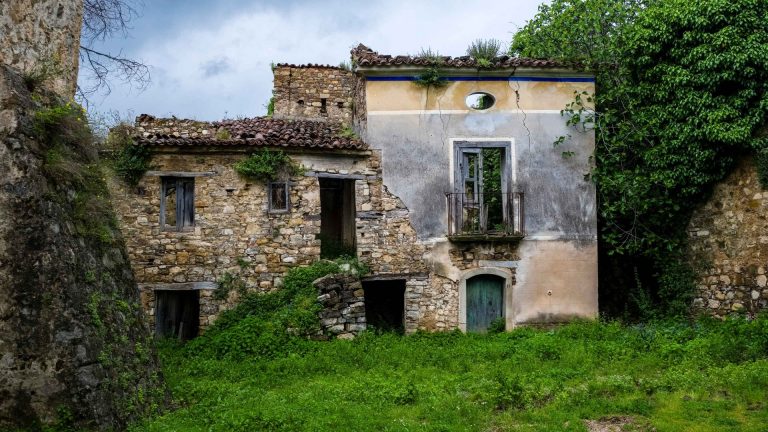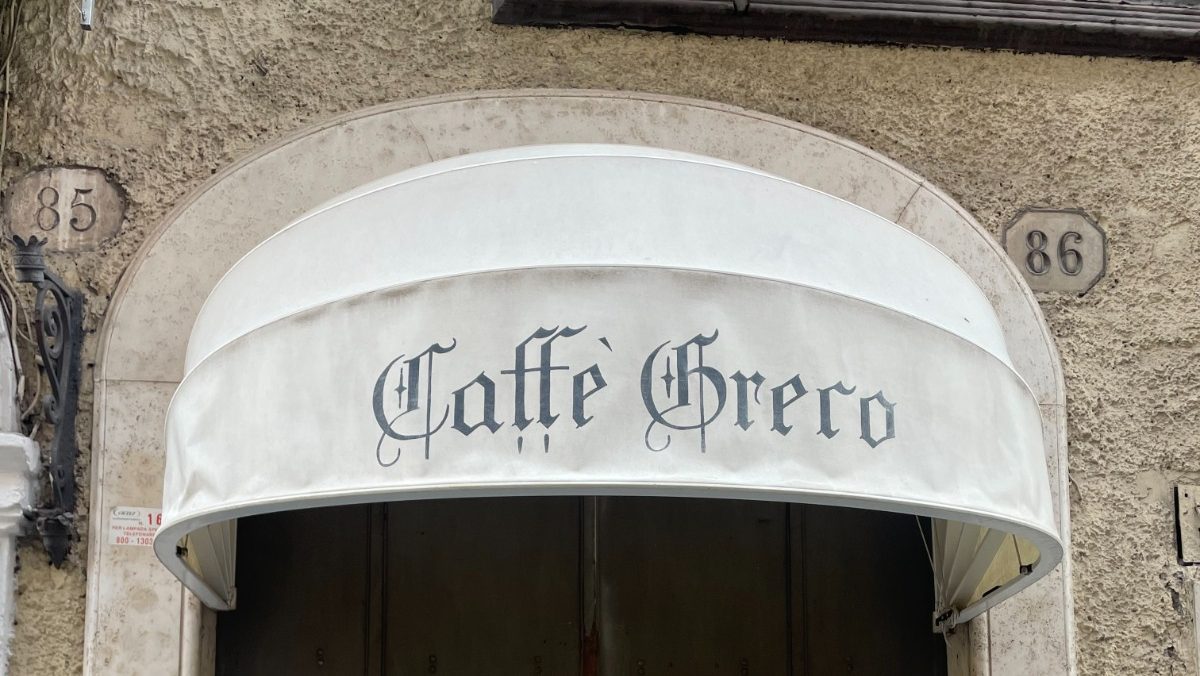On a crisp Friday morning, just a few buildings away from the Spanish Steps, a bar that has been part of Rome’s historic landscape since 1760 was noticeably subdued – fabric umbrellas tied up on the veranda, a sign in the face of its window and its doors shut to the outside world.
Already, just shortly before 10am, tourist groups were starting to mill about the entrance, wondering why the historic bar that had made its way on to so many lists was now closed to the public, seemingly without fanfare. A sign in the window was meant to offer something of an explanation. “The legislative decree 219/2024, specifically created to protect organisations like Caffè Greco and so many other historical businesses at risk, has been completely ignored by the courts, the institutions and the Ministry of Culture,” it read.
Two Italian visitors from Bari in Puglia stopped to scrutinise the bar’s diminished state, looking on in surprise. It was one of their usual stops for a coffee and dessert whenever they came to Rome. “The fact that it’s truly closed, such a historic and important business, is really a shot to the heart for us,” said Annamaria Ferrucci.
Opened in 1760, Antico Caffè Greco is considered one of the country’s oldest coffee bars and likely the oldest in Rome. Its plush red-panelled booths gave way to walls decorated with portraits of a bygone age – the bar was the haunt of some of the greatest artists and writers to grace Rome, including Johann Wolfgang von Goethe, John Keats, Charles Baudelaire and Nikolai Gogol, as well as more modern celebrities like Audrey Hepburn and Princess Diana. Given its location in what was then a hub of British and American artists in Rome, it became an intellectual and creative watering hole.
But after almost a decade of legal battles between the tenant and its local landlord, the Israelite Hospital, the managers of Rome’s most historic coffee bar handed in the keys and watched as the locks were changed last Wednesday morning, signalling a major shift in the ongoing events.
The local branch of the carabinieri, located near the Spanish Steps, helped with the lock-changing, though an official confirmed that it was an administrative process and the police were only present to “guarantee serenity and tranquillity.” It occurred “after various requests by the managers to delay the court decision,” the official said.
Suggested Reading


Sorry… the mayor has just sold your house
The bar has been officially closed to the public since at least mid-August, according to the newspaper La Repubblica. In fact, just days before the lock changing, a petition was pasted to the doors, urging passers-by to “save the historic Caffè Greco.” Just slightly above was a “Chiuso per ferie” sign, or “closed for the holidays,” which had led customers like Ferrucci to think the bar might reopen come the end of the August break.
The dispute stretches back to 2017, when the lease of the former managers officially ended. Following the end of that agreement, the hospital proposed raising the monthly rent from €18,000 (around £15,700) to more than €120,000 (£104,500), according to the Guardian. Years of legal back-and-forth in theory came to an end in July 2024, when Italy’s highest court ruled in favour of the owner.
The previous managers argue that the 2024 law dictates that the management and the space must be kept together as part of the protection of the bar’s cultural heritage. In a petition on the bar’s website, it notes: “According to the law, a historic property cannot be taken apart, separating its function, its contents and its container.”
“The business associated with Antico Caffè Greco fought until the end to save the historic site,” said Antonella Anselmo, a lawyer for the ex-managers. “Still, they had to take note of the inertia of the ministry to reach an agreement and of the desire of the Israeli Hospital not to protect the historic business, despite the obligations of the protective measures. I don’t rule out that new judicial scenarios will be opened in support of the historical site.”
On September 23, the arm of the carabinieri in charge of protecting cultural heritage repossessed a number of objects “of significant value” from the bar, including paintings, sculptures and other antiques, under a “cultural restriction and deemed to have particularly important cultural interest.” The possession occurred after, police alleged, the current tenant removed some of the objects without seeking permission.
As for the future of Antico Caffè Greco, there are as many questions as there are answers. A press representative from the Israeli Hospital, Ruben Spizzichino, noted the organisation’s continued commitment to retaining the historic bar’s original purpose. “Renovations will be evaluated and carried out for the safety of the building following the instructions of the authorities. The goal is to reopen Antico Caffè Greco,” he wrote in an email.
When asked what he would say to those who fear the bar will never reopen as it once was, his response was clear: “It will, and it will be at its best.”
Elizabeth Djinis is a Rome-based writer and journalist



